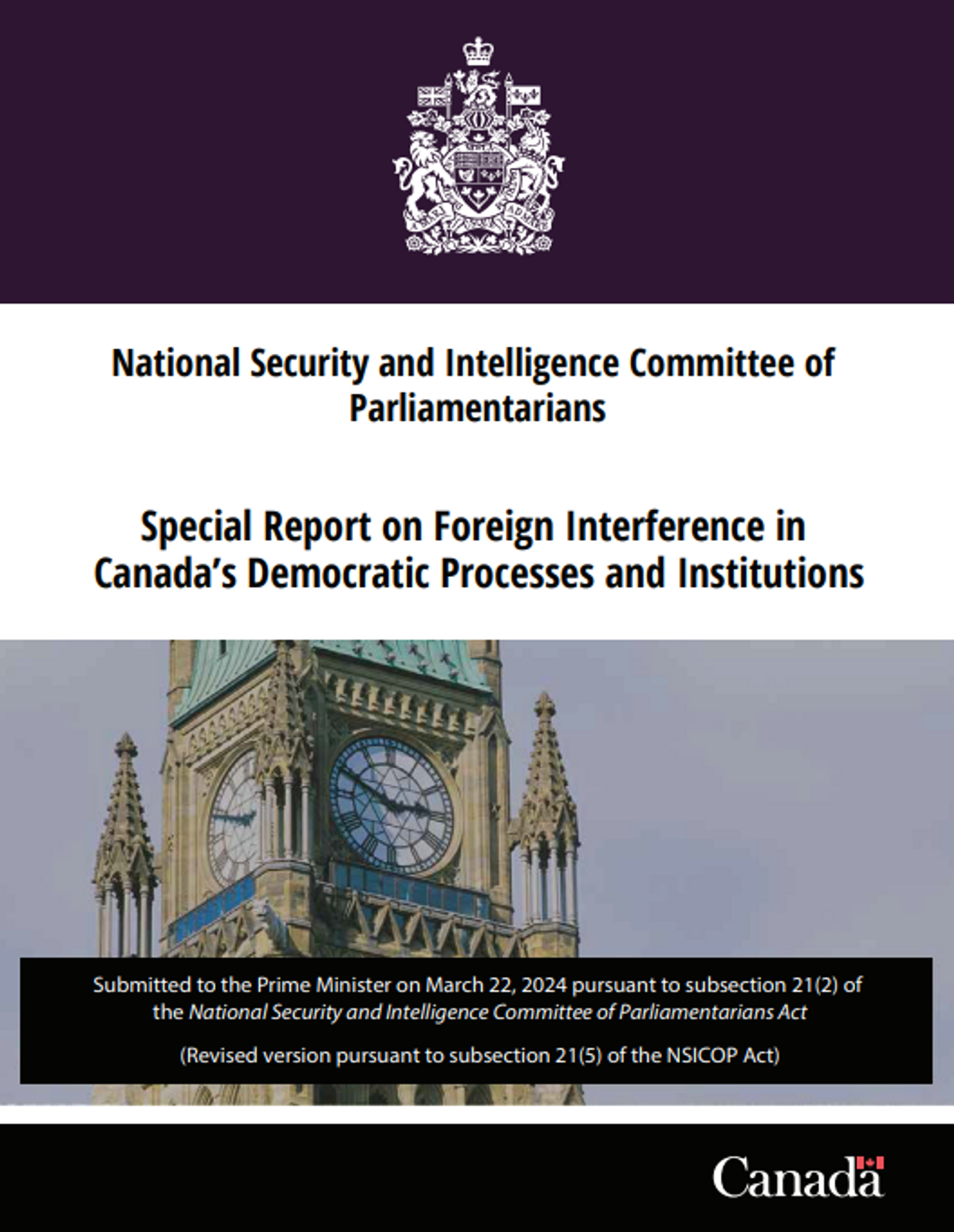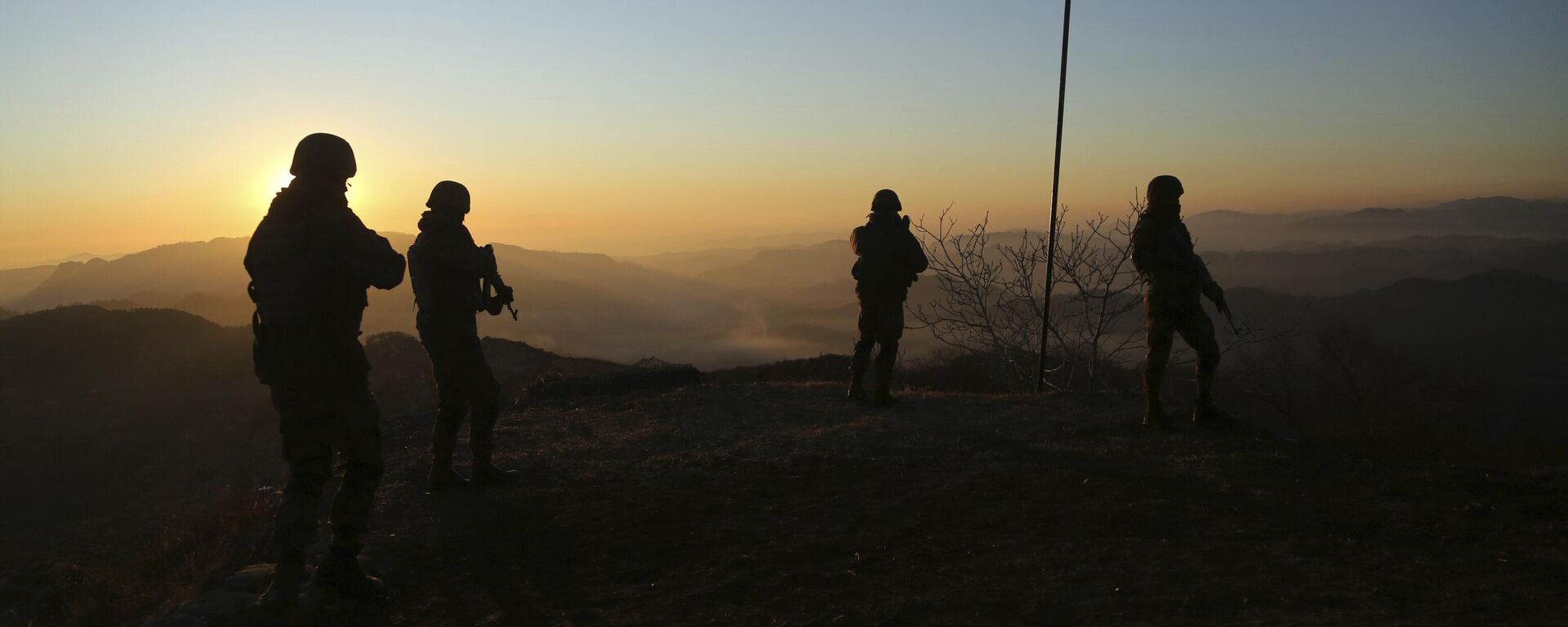https://sputniknews.in/20240620/russia-notes-timing-of-canadas-new-bill-against-foreign-interference-7666171.html
Russia Notes Timing of Canada's New Bill Against 'Foreign Interference'
Russia Notes Timing of Canada's New Bill Against 'Foreign Interference'
Sputnik India
A group of 14 Canadian dissident organizations issued an open letter criticizing the emergency parliamentary measures, warning that the legislation could... 20.06.2024, Sputnik India
2024-06-20T18:02+0530
2024-06-20T18:02+0530
2024-06-20T18:02+0530
canada
india
china
russian foreign ministry
government of india
ministry of external affairs (mea)
ministry of defence (mod)
russian foreign intelligence service (svr)
russia
mod russia
https://cdn1.img.sputniknews.in/images/sharing/article/eng/7666171.jpg?1718886732
Russian Foreign Ministry spokeswoman Maria Zakharova emphasised the "unprecedented" speed with which Canada's bill aimed at countering foreign interference was passed on Thursday.The legislative process for this measure was "completed within a month and a half", according to the director of the Information and Press Department of the Russian MFA.Zakharova highlighted that the bill includes provisions such as the establishment of a registry for foreign agents, restrictions on embassy personnel, and the creation of a commissioner's office to oversee foreign influence.Simultaneously, a coalition of "14 Canadian dissident groups penned an open letter protesting against the parliamentary emergency measures and urging a return to normal legislative procedures," she added.In the meantime, the spokeswoman drew a comparison with Georgia, where segments of society vehemently opposed similar legislation targeting foreign agents, citing their alignment with "Western values."Understanding Bill C-70Bill C-70, an Act respecting countering foreign interference, has been introduced amidst increasing calls for the government to address challenges posed to diaspora communities and Canada’s electoral integrity.Recently, the National Security and Intelligence Committee of Parliamentarians (NSICOP) released a report accusing some parliamentarians of "wittingly" or "semi-wittingly" collaborating with foreign governments.The report argued that India's efforts in foreign involvement have been gradually growing and have expanded beyond addressing pro-Khalistan elements within the North American country.It alleged that these attempts now encompass meddling in Canadian democratic processes and institutions, including targeting the state's politicians, ethnic media, and Indo-Canadian ethnocultural communities.Bill C-70 proposes to enhance warrant powers for Canadian Security Intelligence Service (CSIS), extend the scope of existing laws against sabotage, and introduce specific offences aimed at countering foreign interference.According to both the Royal Canadian Mounted Police (RCMP) and Canada’s intelligence agency, the current legal framework lacks provisions to prosecute individuals engaged in collaboration with foreign states such as China and India. The NSICOP report echoed this assessment.
https://sputniknews.in/20240417/did-india-carry-out-extra-judicial-killings-in-pakistan-ex-raw-chief-answers-7151747.html
canada
india
china
russia
Sputnik India
feedback.hindi@sputniknews.com
+74956456601
MIA „Rossiya Segodnya“
2024
Swapna Nair
https://cdn1.img.sputniknews.in/img/07e7/09/12/4320104_0:0:681:681_100x100_80_0_0_ca8a7d4d582609272840ffdd1cde7278.jpg
Swapna Nair
https://cdn1.img.sputniknews.in/img/07e7/09/12/4320104_0:0:681:681_100x100_80_0_0_ca8a7d4d582609272840ffdd1cde7278.jpg
News
en_IN
Sputnik India
feedback.hindi@sputniknews.com
+74956456601
MIA „Rossiya Segodnya“
Sputnik India
feedback.hindi@sputniknews.com
+74956456601
MIA „Rossiya Segodnya“
Swapna Nair
https://cdn1.img.sputniknews.in/img/07e7/09/12/4320104_0:0:681:681_100x100_80_0_0_ca8a7d4d582609272840ffdd1cde7278.jpg
russian foreign ministry spokeswoman, maria zakharova, ‘unprecedented’ speed, canada's bill, countering foreign interference, legislative process, russian foreign ministry spokeswoman.zakharov, foreign agents, 14 canadian dissident groups, legislative procedures, repressive law, parliamentary elections, executive branch, russian foreign ministry, georgia, "western values. india, china, bill c-70, countering foreign interference act, canada’s electoral integrity, national security and intelligence committee of parliamentarians (nsicop), foreign governments, canada's democratic institutions and processes, russia, pro-khalistan elements, canada, canadian democratic processes and institutions, canadian politicians, ethnic media, and indo-canadian ethnocultural communities, bill c-70, canadian security intelligence service (csis), royal canadian mounted police (rcmp) and canada’s intelligence agency, china, india.
russian foreign ministry spokeswoman, maria zakharova, ‘unprecedented’ speed, canada's bill, countering foreign interference, legislative process, russian foreign ministry spokeswoman.zakharov, foreign agents, 14 canadian dissident groups, legislative procedures, repressive law, parliamentary elections, executive branch, russian foreign ministry, georgia, "western values. india, china, bill c-70, countering foreign interference act, canada’s electoral integrity, national security and intelligence committee of parliamentarians (nsicop), foreign governments, canada's democratic institutions and processes, russia, pro-khalistan elements, canada, canadian democratic processes and institutions, canadian politicians, ethnic media, and indo-canadian ethnocultural communities, bill c-70, canadian security intelligence service (csis), royal canadian mounted police (rcmp) and canada’s intelligence agency, china, india.
Russia Notes Timing of Canada's New Bill Against 'Foreign Interference'
A group of 14 Canadian dissident organizations issued an open letter criticizing the emergency parliamentary measures, warning that the legislation could become repressive before next year's elections, which will decide the fate of the executive branch, Russian official said.
Russian Foreign Ministry spokeswoman Maria Zakharova emphasised the "unprecedented" speed with which Canada's bill aimed at countering foreign interference was passed on Thursday.
The legislative process for this measure was "completed within a month and a half", according to the director of the Information and Press Department of the Russian MFA.
Zakharova highlighted that the bill includes provisions such as the establishment of a registry for foreign agents, restrictions on embassy personnel, and the creation of a commissioner's office to oversee foreign influence.
Simultaneously, a coalition of "14 Canadian dissident groups penned an open letter protesting against the
parliamentary emergency measures and urging a return to normal legislative procedures," she added.
"The rushed enactment appears to be an effort to push through a potentially repressive law ahead of next year's parliamentary elections, which will determine the fate of the executive branch," she underscored.
In the meantime, the spokeswoman drew a comparison with Georgia, where segments of society vehemently opposed similar legislation targeting foreign agents, citing their alignment with
"Western values."Bill C-70, an Act respecting countering foreign interference, has been introduced amidst increasing calls for the government to address
challenges posed to diaspora communities and Canada’s electoral integrity.
Recently, the National Security and Intelligence Committee of Parliamentarians (NSICOP) released a report accusing some parliamentarians of "wittingly" or "semi-wittingly" collaborating with foreign governments.
According to the document, India, displacing Russia, allegedly has become the second most significant foreign interference threat to Canada's democratic institutions and processes. The country is mentioned in the document 44 times, including in footnotes.
The report argued that India's efforts in foreign involvement have been gradually growing and have expanded beyond
addressing pro-Khalistan elements within the North American country.
It alleged that these attempts now encompass meddling in Canadian democratic processes and institutions, including targeting the state's politicians, ethnic media, and Indo-Canadian ethnocultural communities.
Bill C-70 proposes to enhance warrant powers for Canadian Security Intelligence Service (CSIS), extend the scope of
existing laws against sabotage, and introduce specific offences aimed at countering foreign interference.
According to both the Royal Canadian Mounted Police (RCMP) and Canada’s intelligence agency, the current legal framework lacks provisions to prosecute individuals engaged in collaboration with
foreign states such as China and India. The NSICOP report echoed this assessment.



